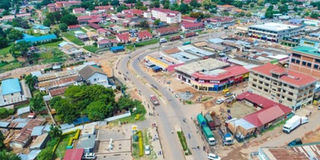After new cities fanfares, let us get down to work

The past one week has been full of fanfare, merry-making and celebrations in the seven former municipalities of Gulu, Arua, Fort Portal, Mbarara, Masaka, Mbale, and Jinja that became cities effective July 1.
One undeniable fact is that as city dwellers, we expect to reap a lot economically, socially and to some extent politically from our respective cities. We also expect the cities to be clean and to provide social amenities, including well-lit streets, better schools, improved healthcare, and water.
Experts in urban development have envisaged a number of positive social, economic and political implications, among them economic development through provision of a platform for entrepreneurship, and technological innovation, to transform the agriculture sector through diversification, value addition and growth of non-agricultural household enterprises.
There is also high expectation for job creation, increase in incomes as a result of concentration of productive economic activities, infrastructure development in terms of energy, transport, information, and to attract investment.
These envisaged dividends from the cities are some of the reasons for celebrating the new cities. But as former US President John F Kennedy said, “ask not what your country can do for you, but what you can do for your country.” We need to ask ourselves not what the cities will do for us, but what we will do for our cities.
So after the dust has settled, we need to begin to start working and make the cities we want we want them to be. Nobody is better placed to make the cities great than the residents.
To begin with, while the cities promise development, they will not come for free. We have to work hard and put the cities at desirable standards.
The requisite services for cities include provision of water, housing, waste management, etc.
But for managers of the new cities to be able to deliver on their mandate, they require adequate resources. However, the resources are not going to fall from heaven like manna.
The revenues needed to run the cities will be realised from taxes, levies, licence fees and fines. That means that as residents, we must engage in some gainful work which can generate revenue for the cities to build roads, equip hospitals, supply water, and procure city ambulances, among others.
We will also change the way we do things in the cities. For instance, it will not be acceptable to erect buildings without approved plans. Section 33(1) of the Physical Planning Act, 2010 emphasises that ‘a person shall not carry out any development within a planning area without obtaining development permission from a physical planning committee”.




